Welcome to our new staff
17 December 2018
The UCL Institute for Environmental Design and Engineering are delighted to welcome a number of new staff members this year from a wide range of academic and industrial backgrounds.
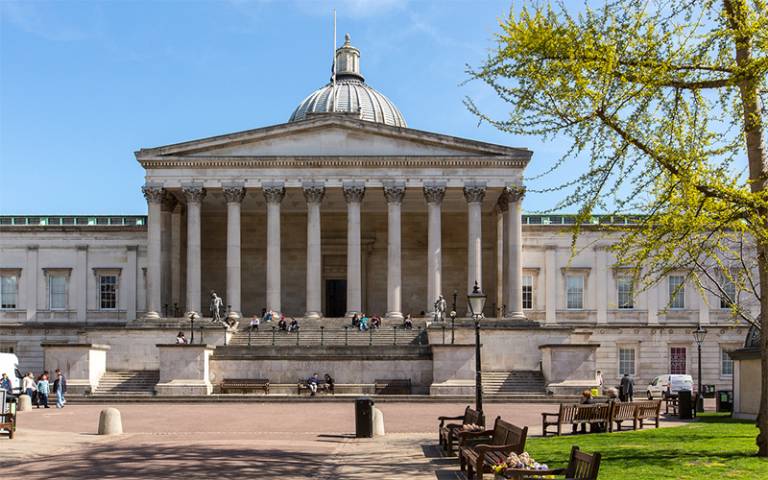
Helen Pineo, Lecturer in Healthy & Sustainable Built Environments
Prior to entering academe, she worked for over ten years as an urban planner (MRTPI) integrating health and sustainability into new development and planning policy. Helen led the Building Research Establishment’s Future Cities programme and BREEAM Communities standard, involving research and advisory projects for government and private sector organisations in the UK and internationally. Previously she worked at the Local Government Association supporting planners and politicians with policy development and training in the areas of climate change, low carbon energy and health. Helen’s research focuses on the translation of health and wellbeing evidence into built environment policy and design. Since 2015 she has worked as a Design Council Cabe Built Environment Expert and currently sits on a number of government and industry steering groups, including for the NHS England Healthy New Towns Programme.
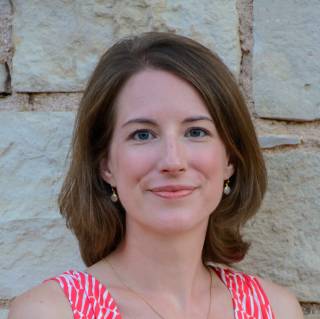
“Coming from my background in industry and local government, I’ve often looked at challenges like the complexity of urban health and sustainability from the perspective of policy development and implementation. I saw academe generally as defining the problem, but not always having the solution. I’m excited to work in IEDE where colleagues are tackling such challenges head on, working with interdisciplinary research teams, the development industry and urban policy-makers to investigate and even implement transformative solutions.
Francesco Aletta, Research Associate Soundscape Indices
I was born and raised in Naples (Italy), where I also got my Master’s degree in Architecture (2010) and PhD in Environmental Design (2014) at the University of Campania “Luigi Vanvitelli” (formerly known as Second University of Naples). I worked as a chartered architect in Italy for several years, but during my PhD I became more and more interested in the relationships between people and everyday sounds, which prompted me to pursue an academic career in the field of environmental acoustics. In 2013, I joined the Acoustics Group of the School of Architecture at the University of Sheffield as a Research Associate to work on the development of soundscape methods within the EU-funded network “SONORUS”. I moved to Belgium in 2016 to work as a post-doctoral researcher at the WAVES Group, in the Department of Information Technology of Ghent University. There, I collaborated in several projects, including AcustiCare and C3Places, relating to both soundscapes and public spaces. During these years, I was a visiting lecturer at Birmingham City University and the Polytechnic Institute of Turin in Italy, teaching about environmental acoustics and soundscapes at both undergraduate and postgraduate level. In 2018 I joined UCL IEDE as Research Associate to work with Prof Jian Kang on the Soundscape Indices project, funded by the ERC Advanced Grant scheme.
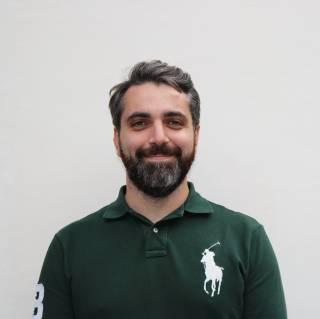
“I am glad I am back to UK, and especially to such a prestigious institution like UCL IEDE. I will put a lot of effort into understanding how we can create healthier and more supportive acoustic environments for our cities.
Farhang Tahmasebi, Lecturer in Engineering and Architectural Design
Farhang has been passionately focused on built environment simulation and occupant-centric performance-based design during his entire career, which he started as a first-year architecture student at Iran's Building and Housing Research Centre (BHRC). Prior to his Lecturer appointment at UCL, Dr Tahmasebi has acted as a researcher and educator at TU Wien Institute of Architectural Sciences. In the course of a seven-year-long collaboration with TU Wien, he established an active and innovative research agenda, delivered state of the art courses on building performance simulation and parametric environmental design, and supervised graduate theses for the Master in Building Science and Technology at TU Wien.
Among his authored and co-authored papers, Farhang Tahmasebi has contributed articles to the Journal of Building Performance Simulation, Building and Environment, and Energy and Buildings, and he has been the co-guest editor of Journal of Building Performance Simulation special issue on occupant behaviour research. He has also received the best paper bronze award at BauSIM 2014 conference organized by IBPSA Germany-Austria. In addition, despite a relatively short postdoc experience, as of October 2018, his publications have reached an h-index of 12 and a citation number of 581 according to Google Scholar.
More specifically, in the last years, Farhang Tahmasebi collaborated in two FP7 research projects, namely CAMPUS21 and RESSEEPE, and actively participated in IEA-EBC Annex 66 on modelling occupant energy-related behaviour. Following his successful contribution to the latter project, Dr Tahmasebi is currently acting as a task co-leader in the recently approved IEA-EBC Annex 79, which focuses on applying occupant behaviour models in the performance-based building design process.
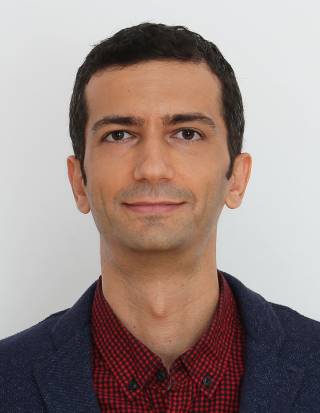
“I am excited and passionate to work at UCL IEDE toward delivering world leading courses on simulation-based occupant-centric low carbon architecture. He also believes that UCL leadership position at IEA-EBC Annex 79 titled “Occupant behaviour-centric building design and operation” is a great opportunity to establish ground-breaking international collaborations to advance the state of the art in this promising field of research.
Gesche Huebner, Lecturer in Sustainable and Healthy Built Environments
Dr Gesche Huebner joined IEDE in November 2018 as a part-time lecturer for the Health, Wellbeing and Sustainable Buildings MSc. In addition, she is working at the UCL Energy Institute as a Senior Research Associate on the newly established UKCRED project where she has also previously worked.
Her work in the last years has focused on understanding drivers of energy consumption and temperatures in building with a particular focus on disentangling the effects of buildings per se and people in buildings. More recently, she has started to look at the relationship between temperatures in buildings and health.
Prior to joining UCL, Gesche worked for 18 months as a Research Fellow at the University of Greenwich, testing interventions aimed at reducing domestic energy consumption through comparative feedback and information campaigns.
Gesche obtained a PhD in Psychology (visual cognitive neuroscience) from the University of Giessen, Germany, in 2010, following a Diploma (about MSc equivalent) in Psychology.
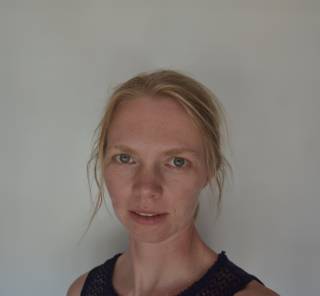
“I am really excited to join IEDE! I am very keen on getting more teaching experience in this exciting field and hope to develop my research portfolio particularly in the area of mental health in buildings.
Young Lee, Honorary Research Associate, Ph.D., LEED AP, WELL AP, FITWEL
I am a visiting research associate at the Bartlett IEDE and also director of Innovative Workplace Institute in New York. Originally trained in interior architecture and sustainable indoor environment, I focused on indoor environmental quality in sustainable buildings and its impact on human occupants including satisfaction, performance, health and wellbeing over two decades. In quest of finding answers for the impact of health & wellbeing – enhanced workplaces on organizational performance and economic competitiveness, I have expanded my horizon to people analytics, cognitive psychology, and behavioural economics.
My big motivation in my research is how to include human occupants in the loop of components of the built environment to provide environmental solutions that would work within human behavioural patterns and offer environmental interventions towards positive reinforcement of human behaviours to pursue both sustainable and healthy environments. My current goal in research is to bridge between rigorous and meaningful scientific academic research and practical industry approaches to provide practitioners with tools that they can utilize easily to advance their day – to – day practices.
In an effort to provide such tools, I have created open source workplace analytics CAPTIW©: Workplace Innovation Performance and PROWELL©: Workplace Health & Wellbeing Performance. I have been trying to pioneer new ways of practicing in workplaces to help organizations achieve better health, wellbeing, and performance. I have published numerous journal/ industry articles and presented at many international/national conferences and professional events including TEDx Talk, Healthcare Design, OECD, and Forbes. I currently serve on the advisory/editorial board of Active Design for Workplace Wellbeing, Leading for Wellbeing Consortium, the Journal of Indoor and Built Environment, and the Journal of Intelligent Buildings International. I am a member of the Health in Buildings Rountable Scholars of the US NIH (National Institute of Health).
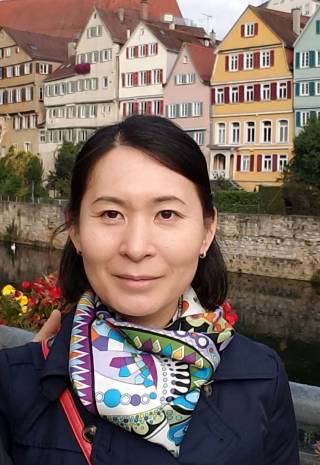
“I ♥ IEDE because of people with advanced ideas, openness to new and different things, humility, and most importantly love for humanity.
Tin Oberman, Research Asssiant in Soundscape Indices
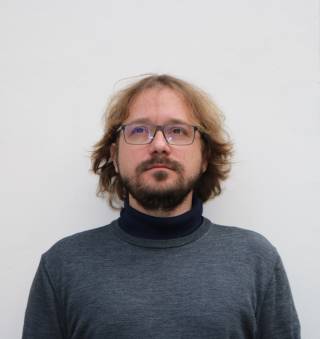
From 2009 to 2015, he worked as Research and Teaching Assistant at the Faculty of Architecture in Zagreb. From 2015 to 2018 he was Post-doctoral Researcher at the Department of Urban and Spatial Planning and Landscape Architecture at the Faculty of Architecture, University of Zagreb (Croatia). In 2017 he was appointed for six months as a Visiting Academic at Acoustics Group of the School of Architecture, University of Sheffield (UK), funded by the Croatian Academy of Science and Arts research grant and the Croatian Science Foundation.
During his studies in architecture and urbanism and following his education in music theory, he started working on several music projects. During his years working at the University of Zagreb, he acquired significant teaching experience in leading undergraduate students through courses covering urban design, spatial planning, landscape architecture and history of landscape architecture at the Faculty of Architecture and the Faculty of Forestry at the University of Zagreb. At the Faculty of Architecture, he was involved in organisation of research projects and contributed to several urban planning teams. His research work included collaboration with the Institute of Electroacoustics at the Faculty of Electrical Engineering and Computing, where he gained experience in auralisation and soundscape field research, focused on the enhancement of soundscape of urban open spaces.
He is author and co-author of publications in scientific journals, conference papers and urban and spatial plans.
From July 2018, Tin was appointed as Research Assistant at the Bartlett Institute for Environmental Design and Engineering of the University College London (UK), to work on the ERC-funded project entitled “Soundscape Indices”.
Andrea Botti, Teaching Fellow in Building Performance Simulation
Andrea is an architect and sustainability consultant with several-years-experience working in Italy, Spain, Australia and the UK.
After attending an MSc in Sustainable Design at the University of Edinburgh in 2012 he deepened his interest in sustainability working with Ryder Architecture at a BREEAM-Excellent school campus in Scotland and later joined the University of Surrey as a Research Officer to work on a EU-funded research project looking at strategies for achieving nearly-zero energy office buildings in northern Europe.
In 2014 he enrolled in an Engineering Doctorate programme with the University of Surrey and PRP Architects, looking at climate change adaptation for residential buildings, and specifically focusing on assessing the risk of indoor overheating for typical urban flats for present and future climates. He is currently writing up his thesis, which he is due to submit in early 2019.
While based at PRP, he was involved in a wide range of sustainability assessments, which involved daylight studies/right-to-light assessments, Post-Occupancy Evaluation involving qualitative (questionnaires, interviews) and quantitative methods (environmental data monitoring), Life-Cycle Carbon Emission Assessments and thermal comfort analyses.
While at PRP, he worked towards the implementation of positive disruption within the sustainability team (now Development Consultancy), specifically looking at automating data analysis for POE studies, introducing parametric design tools for thermal comfort and daylight assessments, and strengthening the integration between sustainability consultancy and architectural design workflow (early-stage analysis).
“i joined IEDE in August 2018 as a part-time teaching fellow for the MEng Engineering and Architectural Design. I am excited to be part of a world-leading institution and its cutting-edge research looking at the multiple aspects of how the built environment interacts with health, wellbeing and energy in a context of climate change.
I regard the new MEng Engineering and Architectural Design programme with particular interest, due to with my cross-disciplinary academic background and work experience to-date. I am convinced that the ambitious, yet far-sighted choice to combine architectural education with a solid understanding of engineering goes in the right direction and will be key for the next generation of built environment professionals.
Valentina Marincioni, Teaching Fellow in Building Physics
Valentina is a Teaching Fellow and researcher in Building Physics, with a background in thermo-mechanical engineering. She is also technical manager of the UK Centre for Moisture in Buildings, an organisation that brings together academia and industry for a moisture-safe built environment.
Her research interests range from moisture physics in buildings to energy efficiency and the sustainable retrofit of traditional buildings.
Prior to this role, she worked as a KTP associate at the Bartlett School for Graduate Studies (UCL) and Natural Building Technologies, on the development of novel Internal Wall Insulation systems. Her work combined the use of in-situ monitoring, hygrothermal simulations and laboratory experiments, to improve the understanding on the hygrothermal performance and to minimise the moisture risk of internal wall insulation systems. She is completing her PhD in Building Physics at the UCL Institute for Environmental Design and Engineering. Her PhD was jointly funded by EPSRC and Natural Building Technologies and focused on the development of a probabilistic tool for the moisture risk assessment of internally insulated solid walls. In this project, in-situ monitoring and hygrothermal simulations formed the basis for the development of predictive models using statistical learning techniques.
Valentina has been involved in consultancy, policy advice and training of construction professionals around the issues of moisture in buildings. Projects include product development, moisture risk assessment for the energy efficient retrofit of traditional and existing buildings, the development of risk assessment frameworks and protocols and the development of CPD courses on moisture theory and risk assessment. She is also contributing to the revision of the BS 5250 on the control of condensation in buildings.
She has been teaching and developing lectures and courses on building physics, moisture risk in buildings and energy efficiency of traditional buildings, both at undergraduate and postgraduate level.
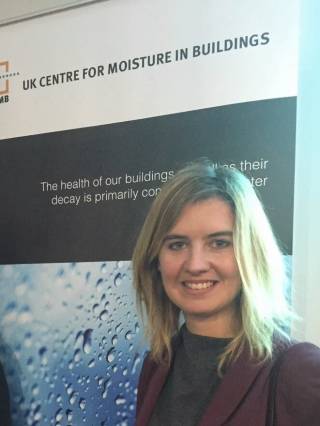
“IEDE has been developing cross-disciplinary collaborations in a rigorous way and I’m excited to apply this expertise to make a difference towards a better built environment.
Cosmin Ticleanu, Teaching Engineering and Architectural Design
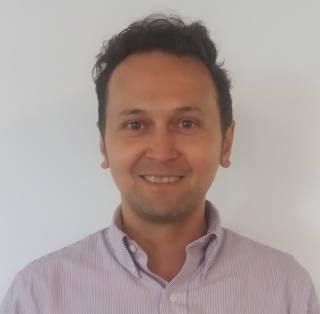
Prior to joining BRE in 2011, Cosmin worked for ten years in lighting design and research, including four years of academic experience in lighting and electrical engineering. Between 2012 and 2017 he was also a visiting lecturer in lighting at Brunel University.
Cosmin is a WELL Accredited Professional and carries out research, measurements and computer modelling work in relation to the WELL Building Standard with a particular emphasis on the Light criteria.
Gordon Lowry, Teaching Fellow in Artificial Lighting and Engineering
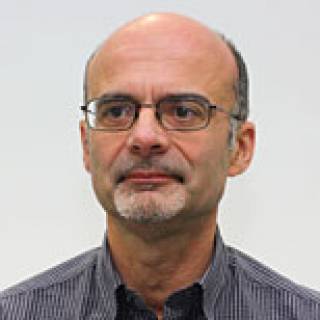
I then spent 12 years as a lecturer at Brunel University teaching electrical building services engineering, and where I completed my PhD looking at user perceptions of building management systems. Much of my time was spent looking after a large distance-learning MSc programme.
Subsequently I taught for 13 years at London South Bank University across their undergraduate and postgraduate building services engineering programmes. In addition to electrical engineering I developed my interest in lighting engineering and energy management of buildings.
I am currently actively involved with the Energy Institute: that is, the professional body rather than the UCL Institute. Predominantly this is in support of their course accreditation activity, and I chair their panel for individual case procedure applications for Engineering Council registration. Anyone interested in EI membership is welcome to discuss this with me.
Though I am only teaching part-time in IEDE I am looking forward to helping support the new MEng course.
 Close
Close

